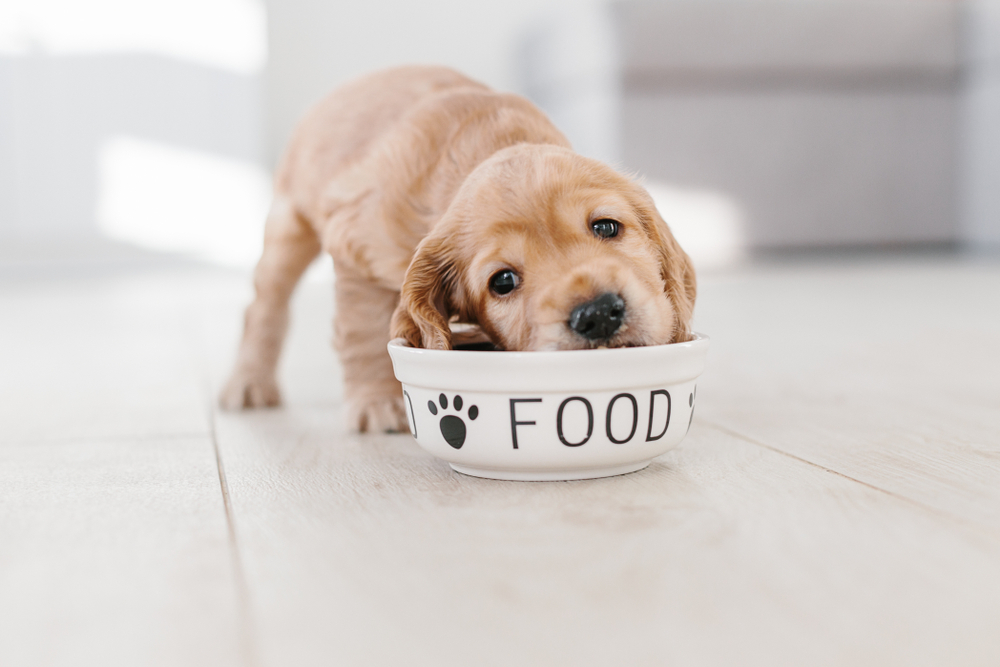Choosing the Best Puppy Food and Best Senior Dog Food

When it comes to selecting the best puppy food, or best senior dog food, the choices seem endless. It can feel overwhelming, especially now that we have additional offerings in grain-free, raw, organic, and homemade. Where do you begin? One factor that should always guide you to the best food for your dog is their age.
Your dog’s nutritional needs change with age and your choices will impact the quality of their development, health, and well-being. This is why Oakland Veterinary Referral Services wants to explain what goes into determining the dietary needs of your puppy or senior dog based on their life stage.
Choosing the Best Food for Your Dog’s Life Stage
Canine diets are designed to be the best food for your dog’s life stage. These life stages include puppy, adult, senior, and gestation/lactation of soon to be mama pups or those nursing.
Puppies
Young puppies in the first year of their life require much more protein, fats, vitamins, and other key nutrients for their rapid growth. Puppies expend a lot of energy, more than most adults, and they require additional caloric intake for the development of tissue and structural growth. This life stage is often further divided by size. Large breed vs. small breed puppies, for example, need more for their particular development to avoid orthopedic problems as well as obesity.
Adult Dogs
Once your youngster has turned one year of age, it is safe to switch them to a normal adult dog diet. Young adults through middle-aged dogs range roughly from 1 year to 5-7 years. Large breed dogs age more quickly, so if you have a giant or very large breed, you can keep them on an adult diet until 5 years, whereas a small breed can typically remain on the adult diet until 7 or so years.
Senior/Geriatric Dogs
Older dogs naturally slow down and don’t need the higher calories included in young or adult pet formulas. As a pet ages, they are prone to obesity along with certain diseases and conditions that emerge with age. Many senior diets are geared toward slowing down the aging process and providing essential vitamins and minerals a dog may need during their Golden Years. If your pet does have any underlying health issues, we recommend prescription diets that will help alleviate symptoms and prolong their quality of life and longevity.
Reproducing Female Dogs
Lastly, pregnant dogs are feeding more than one. These diets are designed to provide the essentials to both mother and the developing puppies. Overweight or underweight mothers to be can pass down health and development problems to their offspring if not kept on a healthy diet with the correct portion size. In your pet’s first two trimesters, they will need to eat much more, like puppies. During lactation, your dog will also need more carbohydrates and other nutrients to feed their growing fur kids.
We hope this overview gave you a better understanding of your fur friend’s nutritional needs at all life stages. If you are ever in doubt about choosing the best food for your puppy, adult, senior or reproducing dog, please contact us. Great nutrition is the foundation of lifelong health and wellness.


